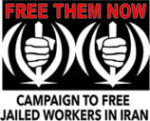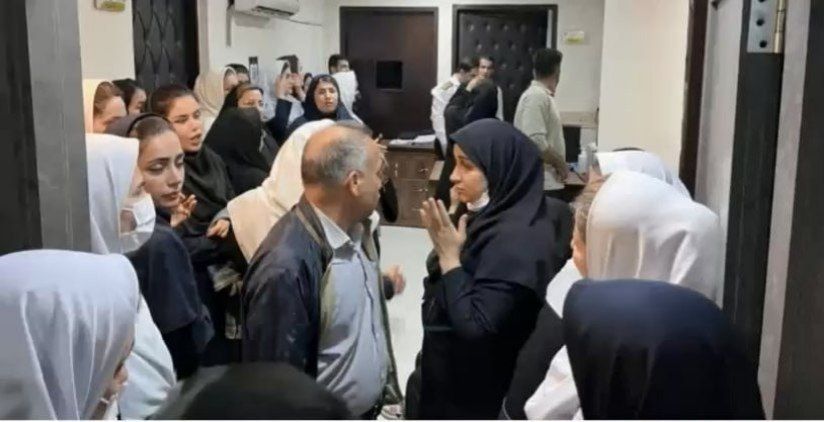The nurses’ protests continue. On January 14, nurses and healthcare staff at “Khatam al-Anbiya” Hospital in Shushtar held a gathering to protest unpaid overtime and other unmet demands. Nurses in various hospitals in Iran are voicing their grievances over discrimination, working conditions, and inadequate wages.
Some of the key issues raised by nurses include: low salaries, high work pressure, mandatory overtime, delayed payment of certain wages, and arbitrary and discriminatory tariff implementation. The nurses demand the following: salary adjustments in line with inflation, the establishment of a special allowance with a coefficient of 3 and its inclusion in payrolls, strict implementation of nursing tariffs, recognition of their profession as hazardous and strenuous, and banning mandatory overtime to improve the quality of human resource services.
According to Nurses’ Strike in Shushtar and Protests in Arak Against Mazut Burning
The nurses’ protests continue. On January 14, nurses and healthcare staff at “Khatam al-Anbiya” Hospital in Shushtar held a gathering to protest unpaid overtime and other unmet demands. Nurses in various hospitals are voicing their grievances over discrimination, working conditions, and inadequate wages.
Some of the key issues raised by nurses include: low salaries, high work pressure, mandatory overtime, delayed payment of certain wages, and arbitrary and discriminatory tariff implementation. The nurses demand the following: salary adjustments in line with inflation (basic job rights and living wages should not be less than 30 million tomans), the establishment of a special allowance with a coefficient of 3 and its inclusion in payrolls, strict implementation of nursing tariffs, recognition of their profession as hazardous and strenuous, and banning mandatory overtime to improve the quality of human resource services.
Mazut burning, which causes severe air pollution and has pushed many cities into red-alert status, resulting in repeated school, university, and office closures, has become a major point of public contention. One of the hotspots of these protests is Arak. Residents of this city have frequently gathered and marched to voice their opposition to mazut burning. On January 15, for the fifth time, the people of Arak staged protests and chanted slogans such as: “Mazut burning is a crime, our silence is betrayal!” At the forefront of the demonstrators, a prominent banner read: “Arak has no air.”
another report mazut burning, which causes severe air pollution and has pushed many cities into red-alert status, resulting in repeated school, university, and office closures, has become a major point of public protests and contention. One of the hotspots of these protests is Arak city. Residents of this city have frequently gathered and marched to voice their opposition to mazut burning. On January 15, for the fifth time, the people of Arak staged protests and chanted slogans such as: “Mazut burning is a crime, our silence is betrayal!” At the forefront of the demonstrators, a prominent banner read: “Arak has no air.”

